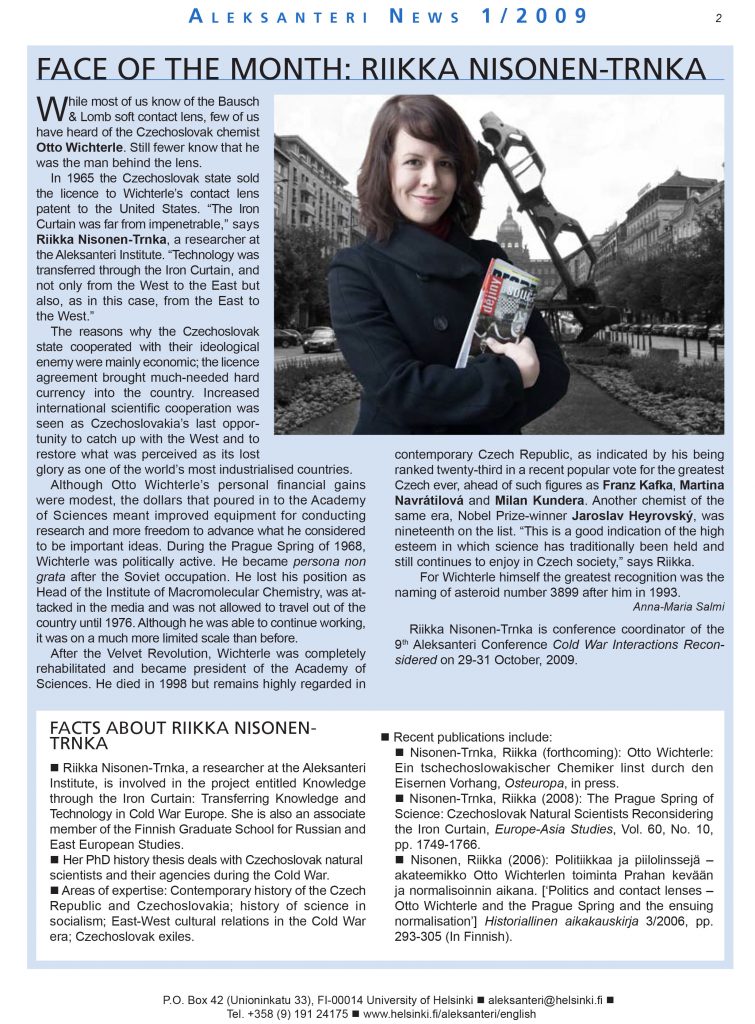In 2016 Riikka Palonkorpi smoothly handles the task of coordinating three doctoral programmes under the Faculty of Social Sciences at the University of Helsinki, with more than 600 PhD students to look after. But seven years ago when she was interviewed for Aleksanteri News 1/2009 she was a PhD student herself.
Riikka defended her dissertation entitled Science with a Human Face: the Activity of the Czechoslovak Scientists František Šorm and Otto Wichterle during the Cold War, in 2012 at the University of Tampere. Her work got a very positive reception in the Czech academic community. “My dissertation was recently translated into Czech and will be published in the Czech Republic by the publishing house Academia. After my defense, I also had the honor to be interviewed as an expert on Wichterle for material that is used in Czech schools”, rejoices Riikka. The interview was recorded in the middle of an exhibition built around Wichterle and the history of the soft contact lens in his native town Prostějov.
So, it seems that Otto Wichterle is considered an important figure in the Czech Republic. What about the status of science and scientists in general? “Czechs are proud of their high technological skills and standards and of the people such as Wichterle, who defended the value of science in times when the regime downgraded academic freedom. However, although scientists are widely appreciated and respected in the country whose economy has been rapidly growing in the recent years and unemployment is one of the lowest in Europe, links between academia and enterprises are relatively weak and the salaries at institutes of higher education are low.”
In Finland, the economic situation is glummer and also the challenges faced by academic community are different. Riikka sees a sort of surprising resemblance here, however: “Sometimes the recent heavy cuts at the universities in Finland, administrative reforms and science policy discussions cause a slight feeling of déjà–vu: they remind me of the atmosphere back in socialist Czechoslovakia. Just like back then, scientists and scholars these days have to justify the significance of their work in front of the society and state to the extent that it takes a lot of time and energy from their actual work.“
There is subtle hope in this analogy: despite the difficult times, Czechoslovak science managed to thrive and develop. Let’s hope this rings true for Finnish scholarship as well!
